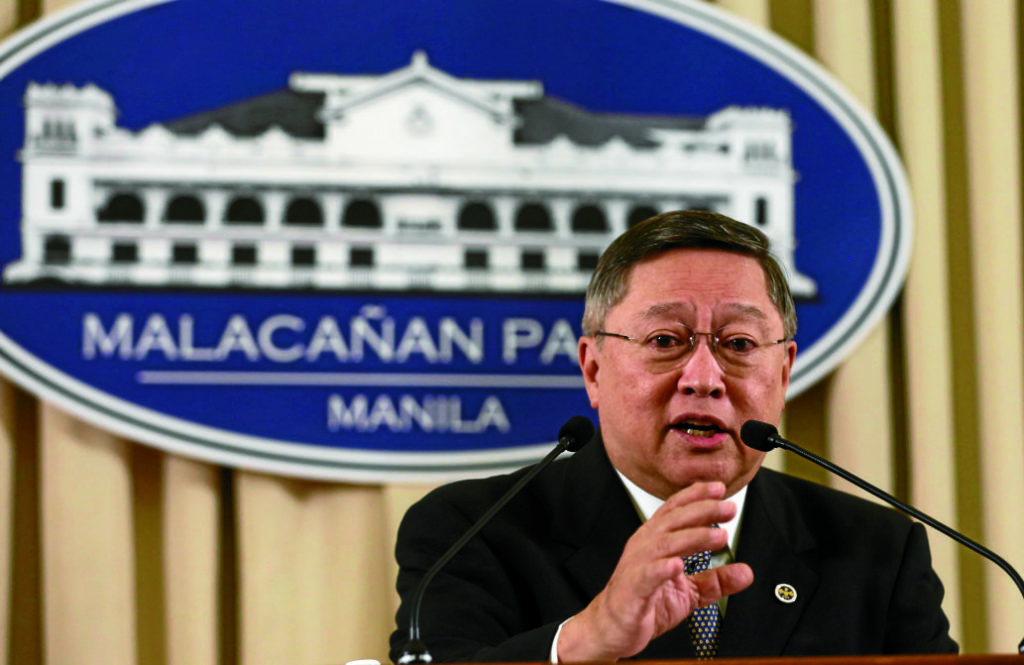BOC, BIR ordered to step up drive against big-time smugglers
The head of the Duterte administration’s economic team has tasked the country’s two largest revenue agencies to intensify their watch on big-time smugglers of rice, oil, cigarettes and other major commodities.
Specifically, Finance Secretary Carlos G. Dominguez III ordered Customs Commissioner Isidro S. Lapeña and Internal Revenue Commissioner Caesar R. Dulay to “focus on rice, fuel, steel, cigarettes and food and agricultural products such as chicken, onion and garlic in beefing up the governments’ efforts to combat smuggling,” the Department of Finance said in a statement.
This was Dominguez’s response to Lapeña’s proposal to form a joint Bureau of Customs (BOC) and Bureau of Internal Revenue (BIR) task force aimed at revitalizing the BOC’s anti-smuggling drive.
“Make sure that you’re working together there. I’m sure smuggling of cigarettes into the country will go up,” Dominguez told Lapeña and Dulay during a recent meeting.
In the statement, Dominguez said he had been receiving reports of cigarette smuggling since Mighty Corp. had shut down its operations as part of its agreement with the government to settle its tax liabilities. He said illegal traders were rushing to bring in cigarettes to fill in the void left by Mighty Corp.
Last month, Dominguez said the BOC and the BIR found in Bulacan fake cigarettes bearing the “Two Moon” brand, allegedly imported from Thailand, although they had yet to trace where they really came from.
Dominguez pointed out that it was a joint operation of the BOC and the BIR that uncovered early this year Mighty’s unpaid excise taxes due to the use of fake cigarette tax stamps.
The Finance chief is optimistic that with the BIR and BOC working together under the would-be joint task force, the two revenue agencies “could replicate their effort in exposing the tax liabilities of corporations as large as Mighty’s.”
Mighty’s tax settlement was deemed the biggest in the country’s history.
To combat oil smuggling, the government will implement the fuel marking system early next year as part of the first tax reform package.
DOF estimates showed that under the Senate version of the proposed first tax reform package, fuel marking would generate P20 billion in additional revenue, although foregone revenue from oil smuggling was estimated at P25 billion to P40 billion yearly.
Last February, the BOC said smuggling of cigarettes, oil and luxury vehicles were its “top sources of revenue leaks,” with foregone revenue hitting over P50 billion yearly. This is equivalent to a tenth of the agency’s average yearly revenue target of P467.9 billion.
Citing reports of the Washington-based watchdog Global Financial Integrity and the International Monetary Fund, the BOC said it had been unable to collect P22.5 billion from oil, P21 billion from vehicles and P16 billion from cigarettes yearly due to smuggling.
